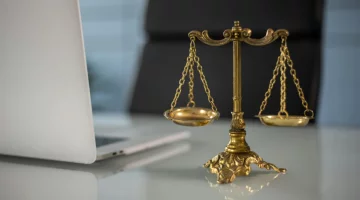Can Personal Injury Lawsuits Be Filed for PTSD?
In Virginia, personal injury lawsuits aren’t limited to physical injuries—they can also include claims for emotional and psychological harm, such as Post-Traumatic Stress Disorder (PTSD). PTSD often arises after traumatic incidents like car accidents, workplace injuries, or violent assaults, leaving victims to deal with debilitating anxiety, flashbacks, and emotional distress. Filing a personal injury claim for PTSD requires demonstrating that the negligence or intentional actions of another party caused the psychological condition.
To pursue compensation, you’ll need evidence such as medical records, therapy notes, and expert testimony to substantiate your claim. The legal process can be complex, but help is available. Contact us and find out how a qualified Virginia personal injury lawyer can help you. With skilled legal representation, you can navigate the challenges of proving emotional damages and seek fair compensation for your treatment costs, lost wages, and the impact on your quality of life.
Understanding PTSD
Experiencing PTSD can occur following exposure to situations like accidents or combat encounters that can lead to symptoms such as flashbacks and intense anxiety while also causing numbness that can greatly affect a person's everyday routine, unlike visible physical wounds, to the eye and easier to understand in legal settings.
Legal Recognition of PTSD
Courts are starting to recognize PTSD as a type of injury as awareness about mental health continues to progress and realize that emotional and psychological damage can be just as crippling as physical injuries do, so many legal systems are now open to considering claims associated with psychological trauma, like PTSD.
Rules for Initiating a Legal Action
To file a lawsuit for PTSD due to personal injury is necessary to fulfill the conditions: Initially proving that the disorder stemmed directly from a traumatic incident caused by someone else's carelessness and then presenting evidence of the disorder typically involves medical records and expert opinions- crucial steps in these situations.
Challenges in Proving PTSD
Proving traumatic stress disorder (PTSD) in a legal setting comes with its own obstacles that are distinct from physical injuries because mental health issues do not always have obvious external signs to support them convincingly in court proceedings. Building a case for PTSD in court cases where the effects are not readily visible to the eye, as with physical injuries like broken bones or bruises, may require bringing in expert witnesses like psychologists or psychiatrists to provide professional insight and testimony.
The Influence of Legal Rulings
Legal cases heavily influence injury lawsuits related to PTSD and their impact on individuals' lives. Setting a standard for future claims through court decisions shaped by precedent and previous rulings.
Finding Ways to Support Individuals Coping With PTSD
In cases involving compensation, it usually includes types of damages to account for various needs of the individual seeking compensation – such as medical bills and therapy expenses along with compensation for lost income and emotional distress caused by the condition's effects on their life circumstances. A careful assessment is needed due to the diverse ways PTSD affects different people.
The Importance of Having a Lawyer by Your Side
In personal injury lawsuits, outcomes can be greatly impacted by the involvement of legal experts in personal injury law who possess a deep understanding of the intricate aspects of such cases. These experts can navigate clients through the intricate legal system with their knowledge and experience to secure thorough representation that enhances the chances of a positive court decision.
Methods for Resolving Conflicts Outside of Court
Some PTSD cases don't end up in court; instead, they choose alternative dispute resolution methods, like mediation and arbitration, to settle matters outside the system in a confrontational way for faster solutions that cater to both side's requirements effectively.
The Significance of Advocating for Mental Health
Advocacy is critical in increasing awareness about PTSD and its legal consequences. Groups and advocates put in a lot of effort to teach legal experts about mental health problems. This advocacy helps mold laws and impact court rulings to guarantee treatment for those with PTSD.
Future Developments in Legal Cases Involving PTSD
As our understanding evolves, the legal framework surrounding it is also likely to change over time. In the future, restrictions on validating emotional anguish in mental health assessments may become more stringent, accompanied by a heightened acknowledgment of cases related to mental health. These shifts have the potential to result in fairer resolutions for individuals seeking redress for injuries linked to PTSD.
Final Thoughts
Seeking compensation through injury lawsuits for PTSD is still a choice for many individuals; however, successfully navigating the legal system necessitates cautious thought and expert assistance. As society advances in health awareness, legal systems are starting to acknowledge the validity of claims more and more. With representation and a comprehensive grasp of requirements, individuals afflicted with PTSD can seek retribution and financial redress through personal injury lawsuits.
More to Read:
Previous Posts:



